已确定的演讲嘉宾
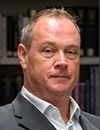
Andreas Möller, Professor, Director, JC STEM Lab of Personalized Cancer Medicine, Prince of Wales Hospital, Chinese University of Hong Kong

Danilo Tagle, Director, Office of Special Initiatives, National Center for Advancing Translational Sciences at the NIH (NCATS)

Han Wei Hou, Associate Professor, School of Mechanical and Aerospace Engineering, Nanyang Technological University Singapore

Hang Hubert Yin, Professor, Tsinghua University
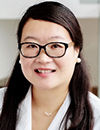
Mei He, Associate Professor, University of Florida -- Conference Chairperson

Nao Nishida-Aoki, Assistant Professor, Waseda Institute for Advanced Studies (WIAS), Waseda University
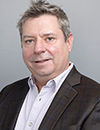
Noah Malmstadt, Professor, Mork Family Dept. of Chemical Engineering & Materials Science, University of Southern California

Takahiro Ochiya, Distinguished Professor, Tokyo Medical University

Tony Jun Huang, William Bevan Distinguished Professor of Mechanical Engineering and Materials Science, Duke University
会议概要
SelectBIO 将于 2025 年 10 月 6 日至 7 日在成田日航酒店(成田国际机场旁)举办 Extracellular Vesicles/Exosomes Asia 2025。
会议将由以下两个分会组成。
-
Lab-on-a-Chip, Microfluidics, Organoids and Organ-on-a-Chip Asia 2025
-
Extracellular Vesicles/Exosomes Asia 2025
与会者和参展商可以充分访问这两个分会,以实现最大程度的科学交流和联系。
SelectBIO 细胞外囊泡/外泌体亚洲高峰会 2025 由佛罗里达大学的Mei He教授担任主席,并将汇集来自亚洲各地的学者和产业/公司参与者。 本次会议的发言人将由学术机构、公司以及提供 EV 研究工具开发基础设施和创新的技术/工具/仪器公司所组成。
鉴于亚洲在研究、诊断和治疗方面对细胞外囊泡(EVs)/外泌体的高度兴趣,此次会议将汇集该领域的各个利益相关者,透过为期两天的密集科学简报、产品演示以及学生和博士后的海报展示来解释和传播研究成果。
海报发表摘要
您还可以在参加会议的同时,发表海报以展示您的研究。但必须提交摘要以供审查。
海报提交截止日期:2025 年 9 月 15 日
会议议程主题
-
Biomarker Content of Extracellular Vesicles and Role for Diagnostics
细胞外囊泡(EV)上的生物标记含量及其诊断作用 -
Disease Areas where EV-based Diagnostics Being Developed
开发中的基于EV的诊断疾病领域 -
Extracellular Vesicles (EVs): Therapeutic and Drug Delivery Potential
细胞外囊泡 (EV):治疗和药物递送的潜力 -
Single Extracellular Vesicle (EV) Analysis by Flow Cytometry
透过流式细胞术进行单个细胞外囊泡 (EV) 分析 -
Technologies for Engineering EVs for Therapeutics, Drug Delivery
用于医疗和药物递送的EV工程技术 -
Technologies for the Isolation, Characterization and Study of Extracellular Vesicles (EVs)-Exosomes
细胞外囊泡(EV)/外泌体的分离、鉴定与研究技术
赞助和参展机会
更多详情请洽询环球资讯有限公司Global Information Co., Ltd.。
Andreas Möller, Professor, Director, JC STEM Lab of Personalized Cancer Medicine, Prince of Wales Hospital, Chinese University of Hong Kong

Andreas Möller Biographical Sketch
Professor Andreas Möller is a trained biochemist and cancer biologist, with >20 years’ experience in cancer research. He is Professor in the Faculty of Medicine at the Chinese University of Hong Kong, supported by the prestigious Global STEM Professor fellowship. In addition, he is the Director of the Jockey Club Laboratory of Precision Cancer Medicine at the Li Ka Shing Institute of Health Sciences. Previously, between 2012 and 2023, he led the Tumour Microenvironment Laboratory at the QIMRB Medical Research Institute, Brisbane, Australia. Professor Möller has a strong background in cancer cell biology, extracellular vesicle (EV) biology, hypoxia research, cancer metastasis and cancer immunology. He is Member of the Board of Directors of the International Society of Extracellular Vesicles since 2022, and since 2024 elected Executive Chair for Meetings and Programs as well as one of the founders and Executive Board Member of the Asia Pacific Societies of Extracellular Vesicles.
Danilo Tagle, Director, Office of Special Initiatives, National Center for Advancing Translational Sciences at the NIH (NCATS)

Danilo Tagle Biographical Sketch
Dan Tagle is Director of the Office of Special Initiatives at NCATS where he many coordinates efforts towards development of disruptive technologies in translational research. He obtained his Ph.D. in Molecular Biology and Genetics from Wayne State University School of Medicine. He was an NIH National Research Service Award postdoctoral fellow in Human Genetics at the University of Michigan. He has served on numerous committees, advisory boards, and editorial boards. He has authored many scientific publications and has garnered numerous awards, including more recently the Roscoe O. Brady Award for Innovation and Accomplishment, and the Henry J. Heimlich Award for Innovative Medicine.
Han Wei Hou, Associate Professor, School of Mechanical and Aerospace Engineering, Nanyang Technological University Singapore

Han Wei Hou Biographical Sketch
Dr. Han Wei Hou is an Associate Professor at the School of Mechanical and Aerospace Engineering (MAE), and Lee Kong Chian School of Medicine (LKCMedicine) at Nanyang Technological University Singapore (NTU). He is also an Adjunct Senior Research Scientist at Tan Tock Seng Hospital (TTSH), and currently serves as the Assistant Chair (Students) at MAE. Dr. Hou received his BEng (First Class Hons) and PhD degree in Biomedical Engineering at the National University of Singapore in 2008 and 2012, respectively. Upon graduation, he did his postdoctoral training at Massachusetts Institute of Technology (USA), and subsequently joined LKCMedicine as the inaugural LKCMedicine Postdoctoral Fellow in 2014. He started his research group at NTU (BioMicroSystems Laboratory, www.hwhoulab.com) in 2018 and his research interests include microfluidics blood diagnostics, organ-on-chips, and cell-based biomanufacturing. He has authored over 60 peer-reviewed journal publications and filed 15 patents/patent applications. His recent research awards and accolades include World's Top 2% Scientists (By Stanford University) (2023, 2024), International Academy of Medical and Biological Engineering (IAMBE) Early Career Award (2022), NTU College of Engineering Research – Young Faculty Special Mention (2022), and International Society for Advancement of Cytometry (ISAC) Innovators (2021).
Hang Hubert Yin, Professor, Tsinghua University

Hang Hubert Yin Biographical Sketch
Professor Hang Hubert Yin was born in Beijing in 1976. After studying for a bachelor's degree at Peking University, he received his PhD from Yale University in 2004 under the supervision of Professor Andrew Hamilton and then spent a post-doctoral period at the University of Pennsylvania School of Medicine with Professor William DeGrado. In 2018, Professor Yin joined the School of Pharmaceutical Sciences at Tsinghua University as a founding Deputy Dean. Prior to joining Tsinghua, he was a tenured faculty member of the University of Colorado Boulder. His research interests lie at the interface of chemistry, biology, and engineering with particular focuses on structure-based drug design, extracellular vesicles, cell signaling biochemistry, biotechnology development, and membrane protein simulations. Professor Yin is a recipient of many accolades for his research in chemical biology and drug discovery, including the Wu Jieping-Paul Janssen Medical & Pharmaceutical Award, American Chemical Society David W. Robertson Award for Excellence in Medicinal Chemistry, OKeanos-CAPA Senior Investigator Award, National Science Fund for Distinguished Young Scholars, Beijing Outstanding Young Scientist, CAPA Distinguished Junior Faculty Award, NSF CAREER Award, AACR Gertrude B. Elion Cancer Research Award, Sidney Kimmel Scholars Award, and HHMI Collaborative Innovation Award among others. Professor Yin’s is currently serving as a member of the Academic Committee of Tsinghua University, a Senior Advisor to the ISEV Board, the Editor-in-Chief of Bioorganic and Medicinal Chemistry Letters, and a Deputy Editor of the Journal of Extracellular Vesicles.
Mei He, Associate Professor, University of Florida

Mei He Biographical Sketch
Dr. He is an associate professor from the Department of Pharmaceutics, College of Pharmacy at the University of Florida. She obtained her PhD degree from the University of Alberta and postdoc training from the University of California, Berkeley. Dr. He is the Editorial Board member of Pharmaceutics and AAPS Scientific Programming Committee Track Leader, as well as the Advisory Board Member of journal Lab on Chip (LOC). Her journal review efforts have been recognized as the Outstanding Reviewers in 2018, 2020, and 2021 from the LOC Royal Society of Chemistry. Dr. He Received NIH Maximizing Investigator’s Research Award for Early Stage Investigators in 2019, and she also received the LOC Emerging Investigator Award in 2019. Her multiple publications received the Most Download Articles of 2016 (LOC), the Featured Cover Story of 2018 (LOC), Technology Readers Choice Award of 2018 (SLAS), and Top 100 Read Articles of 2019 (Scientific Reports from Nature Publishing Group). Her recent publication is appeared in the journal of Nature Biomedical Engineering and highlighted as the Editorial Story. Dr. He research brings in novel technology platforms for differentiating, isolating, and intravesicular loading exosomes precisely, which presents a new way for developing precision medicine Dr. He’s innovation leads to 17 pending and issued patents and have been licensed by multiple companies and commercialized on the market. Particularly, she founded a few startup companies for advancing the innovative exosome research.
Nao Nishida-Aoki, Assistant Professor, Waseda Institute for Advanced Studies (WIAS), Waseda University

Nao Nishida-Aoki Biographical Sketch
Nao Nishida-Aoki is an Assistant Professor at Waseda Institute for Advanced Study (WIAS) since 2022, focusing on extracellular vesicle (EV)-mediated communication between cancer and host cells within physiological tumor microenvironments. She received her Ph.D. from Kyoto University in 2014, studying transcriptional regulation in stress-tolerant yeast. Then she joined National Cancer Center Research Institute (Tokyo, Japan) as a postdoctoral fellow, demonstrating the therapeutic potential of targeting cancer-derived EVs in breast cancer metastasis. At Fred Hutchinson Cancer Research Center (Seattle, WA, USA), she explored molecular mechanisms of cancer-host cell interactions in a physiological tissue context, utilizing organotypic tumor tissue slices and in vitro tumor-associated macrophage polarization model. She was supported by JSPS research fellowships during her training and currently funded by KAKENHI and several private foundations. She has served as a committee member of the Japanese Society for Extracellular Vesicles (JSEV) since 2022.
Noah Malmstadt, Professor, Mork Family Dept. of Chemical Engineering & Materials Science, University of Southern California

Noah Malmstadt Biographical Sketch
Noah Malmstadt is Professor at the University of Southern California. He received a BS in Chemical Engineering from Caltech and a PhD in Bioengineering from the University of Washington. Following postdoctoral work at UCLA, he joined the Mork Family Department of Chemical Engineering and Materials Science at USC in 2007. Malmstadt is the recipient of a 2012 Office of Naval Research Young Investigator award. His research focuses on microfluidic strategies to facilitate material fabrication and biophysical analysis. He has pioneered the integration of ionic liquids as solvents in droplet microreactors and the application of microfluidic systems to synthesizing biomimetic cell membranes. Microfluidic analytical techniques he has developed include methods for measuring the permeability of cell membranes to druglike molecules and techniques for measuring ionic currents through membrane proteins.
Takahiro Ochiya, Distinguished Professor, Tokyo Medical University

Takahiro Ochiya Biographical Sketch
Dr. Takahiro Ochiya was a Chief of Division of Molecular and Cellular Medicine at the National Cancer Center Research Institute, Tokyo since 2011 and he is currently appointed as professor of Tokyo Medical University (since 2018). After he got Ph.D. in 1988 in Osaka University and then went to do a post-doc at La Jolla Cancer Research (The SF Burnham Institute for Medical Research), CA, USA. Dr. Ochiya’s lab focuses the development of novel animal models, methods, and strategies to study cancer development and metastasis. Especially, current focuses are siRNA- and microRNA-based diagnosis and therapy of cancer. He is also one of the top scientist in the study of extracellular vesicles (EV). Dr. Ochiya is awarded as web of science top 1% highly cited researchers (HCR) 2019, 2020, 2021, and 2022 and carries President of Japanese Society of Extracellular Vesicles (JSEV) since 2014.
Tony Jun Huang, William Bevan Distinguished Professor of Mechanical Engineering and Materials Science, Duke University

Tony Jun Huang Biographical Sketch
Tony Jun Huang is the William Bevan Distinguished Professor of Mechanical Engineering and Materials Science at Duke University. Previously, he was a professor and the Huck Distinguished Chair in Bioengineering Science and Mechanics at The Pennsylvania State University. He received his Ph.D. in Mechanical and Aerospace Engineering from the University of California, Los Angeles (UCLA) in 2005. His research focuses on acoustofluidics, optofluidics, and micro/nano systems for biomedical diagnostics and therapeutics. He has authored or co-authored over 300 peer-reviewed journal articles, which have been cited more than 37,000 times, as documented by Google Scholar (h-index: 102), and holds 26 issued or pending patents. Prof. Huang is a fellow of the National Academy of Inventors (USA) and the European Academy of Sciences and Arts, as well as six professional societies: the American Association for the Advancement of Science (AAAS), the American Institute for Medical and Biological Engineering (AIMBE), the American Society of Mechanical Engineers (ASME), the Institute of Electrical and Electronics Engineers (IEEE), the Institute of Physics (UK), and the Royal Society of Chemistry (UK). His contributions have earned him prestigious awards, including the NIH Director’s New Innovator Award (2010), the Outstanding Young Manufacturing Engineer Award from the Society for Manufacturing Engineering (2012), the IEEE Sensors Council Technical Achievement Award (2014), the Analytical Chemistry Young Innovator Award from the American Chemical Society (2017), the Van Mow Medal from ASME (2019), and the Technical Achievement Award from the IEEE Engineering in Medicine and Biology Society (2019). In the last two consecutive years (2022-2023), he has been named to a global list of the most highly cited researchers (cross field) by Clarivate (Web of Science).
摘要通过审查,我们将为您提供展示海报所需的所有资讯。
摘要内容
- 使用英语撰写。
- 使用第三人称。
- 包括标题、作者姓名和作者所属机构。
- 英语字数在100至200字之间。
- 适合直接发布在会议记录或网站上。
- 与会议主题相关。
会议议程主题
- Biomarker Content of Extracellular Vesicles and Role for Diagnostics
细胞外囊泡(EV)上的生物标记含量及其诊断作用 - Disease Areas where EV-based Diagnostics Being Developed
开发中的基于EV的诊断疾病领域 - Extracellular Vesicles (EVs): Therapeutic and Drug Delivery Potential
细胞外囊泡 (EV):治疗和药物递送的潜力 - Single Extracellular Vesicle (EV) Analysis by Flow Cytometry
透过流式细胞术进行单个细胞外囊泡 (EV) 分析 - Technologies for Engineering EVs for Therapeutics, Drug Delivery
用于医疗和药物递送的EV工程技术 - Technologies for the Isolation, Characterization and Study of Extracellular Vesicles (EVs)-Exosomes
细胞外囊泡(EV)/外泌体的分离、鉴定与研究技术
版权
提交摘要的演讲者/个人将对摘要中包含的内容负全部责任,并且所有共同作者都应知晓此事实。敬请留意提交者的简历或摘要可能会用于本网站或会议资料中。
2025年10月7日
08:00
Ozora Exhibit Hall
Coffee, Tea and Networking in the Exhibit Hall
在展厅的咖啡・茶饮社交活动
2025年10月7日
09:00
鹤厅
Chairperson's Opening Remarks
会议议长致开幕词

Mei He, Associate Professor, University of Florida, United States of America
Chairperson's Welcome and Introduction to the Conference and Topics Addressed
会议议长的欢迎致辞与介绍、会议将讨论的议题
2025年10月7日
09:15
鹤厅

Andreas Möller, Professor, Director, JC STEM Lab of Personalized Cancer Medicine, Prince of Wales Hospital, Chinese University of Hong Kong
Translation of Extracellular Vesicles from Bench to Bedside
从细胞外囊泡(EV)的基础研究到临床(B2B)应用
Extracellular vesicles (EVs) present a huge, yet largely untapped resource for disease diagnostics and therapeutics. While significant advancements have been made in bench-based investigations, these have largely not yet been successfully translated to clinical or commercial applications. In the context of cancer, the evaluation of EV cargo composition changes allowed us to develop highly sensitive, liquid biopsy diagnostic and prognostic biomarkers. In this presentation, the translational work, including the validation in retrospective patient cohorts and prospective trials will be discussed. Some of the technical and logistic challenges faced when transitioning bench methods to bedside applications, and their implementation into a hospital setting, will be highlighted.
2025年10月7日
09:45
鹤厅

Hang Hubert Yin, Professor, Tsinghua University, China
Exploring the Frontiers of EV Research by Bridging Basic Science and Biomedical Applications
We have been focusing on the mechanistic studies of extracellular vesicles (EVs) by investigating their roles in innate immunity and cell-cell communications. For example, we have found that transport of ODN and Cdc42 from TLR9-activated macrophages to naïve cells via EVs exerts synergetic effects in propagation of the intracellular immune response, suggesting a general mechanism of EV-mediated uptake of pathogen-associated molecular patterns. Furthermore, these EVs may render an emerging disease biomarker that possesses tremendous theranostic potential. Nonetheless, the secretion of EVs cannot be monitored using traditional detection methods due to their small sizes. We developed an innovative strategy to target and capture EVs from various metastatic cancers using rationally designed peptide probes that recognize highly curved surface of these disease related EVs. These peptide probes also provide tools to selectively target cancer cells with specific lipid compositions and distributions, laying the foundation for further development of the next-generation of diagnostics and prognostics.
2025年10月7日
10:15
鹤厅

Han Wei Hou, Associate Professor, School of Mechanical and Aerospace Engineering, Nanyang Technological University Singapore
Label-Free Microfluidics Technologies for Extracellular Vesicles Isolation
Emerging biomarkers including extracellular vesicles (EVs) and microRNAs have shown great potential in blood-based diagnostics. However their detection is often confounded by delayed blood processing and cellular contamination due to non-standardized centrifugation practices which may cause large variations in plasma quality. Conventional EV isolation methods using ultracentrifugation, size-exclusion chromatography (SEC) and tangential flow filtration (TFF) are manual, time-consuming and require plasma as input sample. In this talk, I will highlight the development of several label-free microfluidic tools from our lab for EV sample preparation. We will first present a high throughput (~10 mins/per mL of whole blood) and gentle microfluidic sorting technology (ExoArc) for single-step plasma extraction from whole blood. With a size cut-off of 500 nm based on particle inertial focusing effects, ExoArc-isolated plasma is completely cell-free, platelet-free and highly enriched in EVs. When coupled with SEC, this centrifugation-free workflow (< 1 hr) greatly improves EV yield while reducing formation of EV aggregation and platelet-derived EVs as compared to ultracentrifugation. To address the bottleneck of protein contamination, we also developed a microfluidic SEC device (µSEC) integrated with an on-chip nanoliter sample plug injection to separate EVs from plasma proteins under continuous flow. We envision that μSEC system can be readily automated and integrated with ExoArc and downstream EV detection or assays for real time monitoring tool in EVs manufacturing or EV-based clinical applications.
2025年10月7日
10:45
Ozora Exhibit Hall
Mid-Morning Coffee and Tea Break and Networking in the Exhibit Hall
2025年10月7日
11:30
鹤厅
Keynote Presentation
主题演讲

Takahiro Ochiya, Distinguished Professor, Tokyo Medical University, Japan
Study of Common Mechanisms of Cancer EV Secretion
Extracellular vesicles (EVs) are involved in intercellular communication during cancer progression; thus, elucidating the mechanism of EV secretion in cancer cells will contribute to the development of an EV-targeted cancer treatment. However, the common mechanisms of biogenesis of EVs in cancer cells is not fully understood. Here we present microRNA library screening allowed elucidating some specific microRNAs which are significantly involved in cancer EVs secretion and their molecular targets are contributed to cancer progression such as metastasis and drug resistance.
2025年10月7日
12:00
Ozora Exhibit Hall
Networking Lunch in the Exhibit Hall -- Network with Colleagues, View Posters and Engage with Exhibitors
**Japanese Bento Lunch**
2025年10月7日
13:30
鹤厅

Tony Jun Huang, William Bevan Distinguished Professor of Mechanical Engineering and Materials Science, Duke University, United States of America
Acoustofluidics: Harnessing Acoustics and Fluid Mechanics for Extracellular Vesicle Separation and Other Biomedical Innovations
The use of acoustics in medicine can be traced back to 350 BC, when Hippocrates—the “Father of Medicine”—employed early forms of acoustic diagnostics, laying the foundation for a legacy of sound-based innovation. Today, acoustofluidics, the integration of acoustics and fluid mechanics, is at the forefront of biomedical innovation, enabling label-free, high-purity, and high-yield separation of critical biomarkers such as extracellular vesicles (EVs), viruses, circulating tumor cells, and proteins from complex biofluids like blood, urine, and saliva. This next-generation technology vastly outperforms conventional approaches in precision, versatility, and biocompatibility. Acoustofluidic devices allow for non-invasive, high-throughput manipulation of bioparticles across eight orders of magnitude—from nanometers to centimeters—regardless of their size, shape, or physical properties. Their inherent scalability and adaptability are driving advances in diagnostics, therapeutics, and biomedical engineering. In particular, their ability to isolate EVs with exceptional purity and yield is opening new frontiers in cancer diagnostics, neurodegenerative disease research, infectious disease detection, and personalized medicine. As a platform technology, acoustofluidics is enabling transformative tools such as on-chip diagnostic devices, precision apheresis, and targeted gene editing. With unmatched biocompatibility and performance, acoustofluidic technologies are revolutionizing how we interact with biological systems—bridging the gap between scientific discovery and clinical impact, and extending a millennia-old tradition of healing with sound into the future of medicine.
2025年10月7日
14:00
鹤厅

Nao Nishida-Aoki, Assistant Professor, Waseda Institute for Advanced Studies (WIAS), Waseda University, Japan
Spatiotemporal Visualization of Extracellular Vesicle Transfer at Early Metastatic Niche
Cancer cells actively reprogram surrounding non-malignant cells into tumor-supportive phenotypes to initiate metastatic growth in distant organs. To investigate the role of cancer extracellular vesicles (EVs) in this early microenvironmental remodeling, we established organotypic ex vivo models of breast cancer metastasis using organotypic tissue slice cultures (TSCs) from mouse brain and lungs. By combining these models with two-photon microscopy and HaloTag-labeled EVs, we achieved real-time visualization of EV secretion within native tissue architecture. We observed heterogeneous EV distributions and organ-specific uptake by different cell populations. These findings reveal selective EV targeting mechanisms potentially contributing to organ tropism during metastatic colonization. This approach provides a powerful platform to dissect the spatiotemporal dynamics of EV-mediated microenvironment formation in physiologically relevant contexts.
2025年10月7日
14:30
鹤厅

Danilo Tagle, Director, Office of Special Initiatives, National Center for Advancing Translational Sciences at the NIH (NCATS), United States of America
Title to be Confirmed
标题未定
2025年10月7日
15:00
Ozora Exhibit Hall
Mid-Afternoon Coffee and Tea Break in the Exhibit Hall and Networking with Exhibitors and Poster Presenters
* 活动内容有可能不事先告知作更动及调整。
黄金赞助商
参展商
赞助商・参展机会
更多详情请洽询环球资讯有限公司Global Information Co., Ltd.。
成为SelectBIO会议参展/赞助商的优势
专业知识:SELECTBIO组织专门针对药物发现和生命科学领域的会议。 我们的许多员工都是合格的,在生物科学领域拥有多年的经验,因此他们熟悉术语和背景,并能够理解我们参与者的需求。
卓越的客户服务:SelectBIO的销售团队将为您提供专业的建议和定制服务套组。 从合同到活动,以及活动期间,我们的客服部门将随时向您通报所需的资讯。
Extracellular Vesicles/Exosomes Asia 2025 Conference 活动地点
SelectBIO is delighted to host Extracellular Vesicles/Exosomes Asia 2025 Conference at the:
Hotel Nikko Narita
500 Tokko Narita-shi
Chiba 286-0106
Japan
Telephone: +81-476-32-0032
-
The Hotel Nikko Narita is very easily accessible from international destinations via Tokyo Narita International Airport (Airport Code: NRT).
-
The hotel can be accessed easily from Narita International Airport via a complimentary bus, usually around 10-15 minutes to and from the airport, depending on terminal chosen.
-
Distance-wise airport to the hotel is approximately 3 kilometers (1.8 miles).
-
If you are arriving to Narita Terminal 1, the shuttle to the hotel stops at bus stop # 16.
-
If you are arriving to Narita Terminal 2, the shuttle to the hotel stops at bus stop # 33.
Guests can make hotel bookings as well as see the different room types on the hotel website.
The hotel website with details is at the link below.
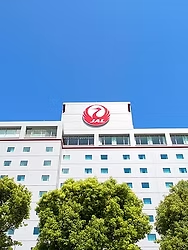
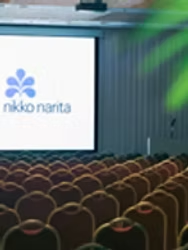
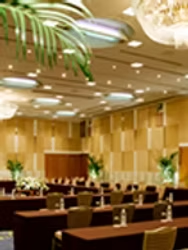

For any hotel reservation-related issues, or if you need any help with hotel bookings, please contact us.
SelectBIO has NOT authorized ANY third party company to assist in hotel bookings or reservations for the conference. Please do NOT do business with any third party companies. If in doubt, please contact us immediately to clarify.
短期课程/培训课程
3D-Printing of Microfluidics
微流体中的 3D 列印
2025年10月1日 19:30 - 21:30
鹤厅(成田日航酒店)

Noah Malmstadt, Professor of Chemical Engineering and Materials Science, University of Southern California
3D 列印这个可快速制造具有三维复杂流道构造的微流体装置方法正日益受欢迎。
本短期课程涵盖:
3D列印技术应用于微流控制造的机制
微流体列印领域最新的商用解决方案
3D 列印微流体系统的应用与局限性
新兴和未来技术将如何提升 3D 列印作为微流体制造工具的潜力?
* 活动内容有可能不事先告知作更动及调整。







.jpg)